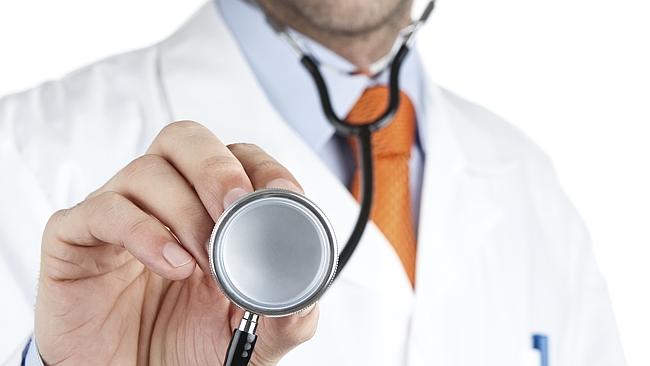
Doctors took advantage of a taxpayer funded incentive scheme for after hours care. Picture Thinkstock Source: Supplied
EXCLUSIVE: Doctors were claiming taxpayer funded incentive payments for after hours care without providing any services, a due diligence study has found.
Others charged such exorbitant fees no patient would be able to afford a call-out. The intent: On-call doctors never had disrupt their leisure time to make an after hours visit.
This is the deeply flawed scheme the Federal Government has announced will be reintroduced after Medicare Locals are axed on June 30.

Please explain … Health Minister Sussan Ley has announced changes to the way after hours care is managed. Picture Kym Smith News Corp. Source: News Corp Australia
A due diligence investigation into the GP practice incentive scheme has been obtained by News Corp.
It raises serious questions about Health Minister Sussan Ley’s decision to return to this method of funding after hours care when Medicare Locals are scrapped on June 30.
News Corp exclusively reported this week the government’s after-hours reforms will see the GP helpline scrapped and general practitioner doctors handed $98 million in incentive payments to provide after-hours care.
‘Significant funding, minimal service’
The Inner East Melbourne Medicare Local has major concerns about this because its 2013 investigation of GP practice incentive payments found “gross inefficiencies” in the system.
“Some practices were receiving significant amounts of funding to provide minimal after hours services, and other practices were receiving very little to provide significant after hours services,” the report said.
“A number of practices admitted to being on call, such as between 6am and 8am, five days per week, and therefore qualified for after hours PIP (Pratctice Incentive Payments), but did not ever see patients, or provided a minimal telephone service only,” the report says.
“Some doctors were on call in the after hours, and charged such large call out fees that the service was very rarely used, but payments were continuing to be made to the practice,” it says.
When Medicare Locals took over the job there was a 29 per cent increase in the number of practices open after hours and a 32 per cent increase in after hours consultations.
‘Something for nothing’
East Melbourne Medicare Local spokesman GP Dr Patrick Crowe said the GP incentive scheme worked “a bit like a tax minimisation scheme, it was a way of doing something without actually doing it,” he said.
He said his organisation did two simple things to drive improvements.

Some medical practices claimed to provide after hours care but never treated a patient. Picture: Thinkstock Source: ThinkStock
It did not provide incentive payments to doctors who provided less than 10 hours a week after hours care and it paid a higher incentive to those who increased the number of patients they treated after hours.
The number of avoidable ED presentations also fell and the Medicare Local cut the amount paid to Medical Deputising Services to provide after hours care in the region by 70 per cent by negotiating region wide contracts.
Audits to reign-in rorts
A comprehensive audit and compliance framework will be established as part of the implementation of the new PIP after hours incentive, a spokeswoman for the Department Health said.
The Department of Human Services says it will conduct targeted and random audits of PIP practices to ensure practices meet eligibility requirements and may seek to recover payments if a practice is unable to substantiate its claims for payments.
Health Minister Sussan Ley said Primary Health Networks would continue to play an important role in supporting after hours care.
“It’s important patients are able to get in contact with a local GP after hours rather than only being able to talk to one on the phone on the other side of the country” Ms Ley said.
Greater scrutiny needed
Australian Hospital and Healthcare Association chief Alison Verhoeven says if there is to be a return to providing doctors with incentive payments “we should ensure practices that don’t deliver don’t get funded”.
Australian Medical Association GP spokesman Dr Brian Morton said his organisation was aware some doctors took advantage of the incentive scheme.

Australian Medical Association GP spokesman Brian Morton says 99 per cent of doctors do the right thing. Source: News Limited
“In every endeavour some people push things to the boundaries, others rort and some are fraudulent in their claims, but I believe 99 per cent of providers do the right thing,” he said.
He said under the new incentive scheme doctors who simply ran an after hours phone line or engaged a medical deputising service to provider after hours care would get minimal incentives while rural doctor providing 24/7 care would get more.
“Medicare should be doing its proper audit function, they’ve got the statistic to do it,” he said.
